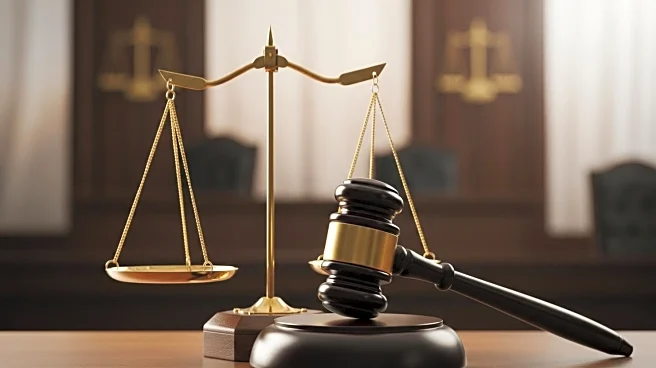What's Happening?
A federal judge in Washington has declined to reinstate eight inspectors general who were dismissed by President Trump during his second term. The judge, Ana C. Reyes, ruled that while the firings violated the 1978 Inspector General Act due to the lack of a 30-day notice to Congress, reinstating the officials would be ineffective as the president could later remove them lawfully. The lawsuit filed by the inspectors general highlights concerns over Trump's efforts to replace federal watchdogs with loyalists, potentially undermining the role of these officials in investigating government agencies for fraud and abuse. The inspectors general were responsible for overseeing departments such as Defense, Veterans Affairs, and Health and Human Services.
Why It's Important?
The judge's decision underscores the ongoing debate over executive power and the independence of federal oversight bodies. Inspectors general are critical in ensuring government accountability, and their removal without due process raises concerns about the administration's commitment to transparency. The case reflects broader issues of political influence in the appointment and dismissal of officials tasked with maintaining government integrity. The outcome may impact future legislative efforts to protect the independence of inspectors general and could influence how subsequent administrations handle similar situations.
What's Next?
The lawsuit will proceed, with the possibility of legal compensation for the plaintiffs if they succeed. The case may lead to increased scrutiny of the Trump administration's actions and could prompt legislative reforms to strengthen protections for inspectors general. The decision may also influence the broader debate on executive authority versus congressional oversight, potentially affecting how future presidents approach the removal of federal watchdogs.
Beyond the Headlines
The case raises important ethical and legal questions about the balance of power between the executive branch and independent oversight bodies. It highlights the challenges in ensuring accountability within the federal government, particularly when political considerations may influence the removal of officials tasked with maintaining transparency. The long-term implications could include shifts in how inspectors general are appointed and removed, potentially leading to reforms aimed at safeguarding their independence.












